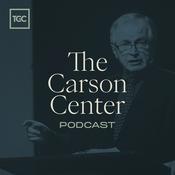Welcome to the inaugural episode of Biblical Theology Briefing, a podcast from The Gospel Coalition, hosted by Ben Gladd and Matt Harmon. Biblical theology is not a verse-by-verse commentary or a devotional. Instead, it focuses on tracing the connections, themes, and patterns across Scripture, helping us see how the Bible tells one unified and coherent story.
Resources Mentioned
From Adam and Israel to the Church by Ben Gladd
From the Manger to the Throne by Ben Gladd
Rebels and Exiles by Matt Harmon
Reference Works & Series
The Servant of the Lord and His Servant People by Matt Harmon
Reference Works & Series New Dictionary of Biblical Theology by Alexander, Rosner, Carson, Goldsworthy
New Studies in Biblical Theology (NSBT) by Don Carson & Ben Gladd
Essential Studies in Biblical Theology (ESBT) by Ben Gladd
📧 Email us at
[email protected] Hosted by Simplecast, an AdsWizz company. See pcm.adswizz.com for information about our collection and use of personal data for advertising.



